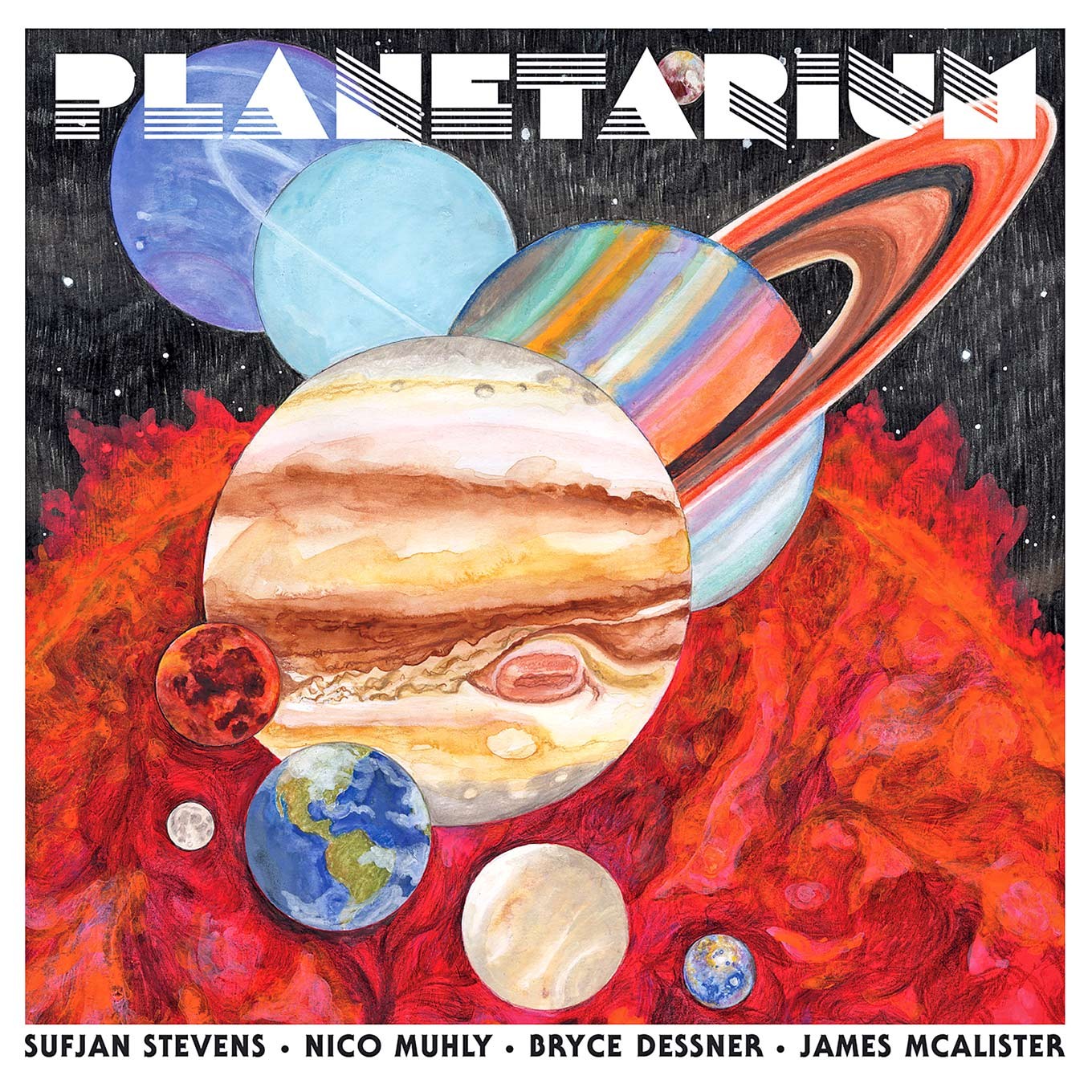Popular Reads
Top Results
Can't find what you're looking for?
View all search resultsPopular Reads
Top Results
Can't find what you're looking for?
View all search resultsAlbum Review: 'Planetarium'
Change text size
Gift Premium Articles
to Anyone
T
he 17 songs on Planetarium, the collaborative record by musicians Sufjan Stevens, Nico Muhly, Bryce Dessner and James McAlister, are said to be inspired by the solar system.
With fitting album art and song titles based on the various planets, black holes, the Kuiper belt, Halley’s Comet, the moon and the sun, the album certainly doesn’t take its concept half-heartedly.
Of course it all goes back to the songs. On that end, Planetarium, released on the 4AD label, sounds pretty much like how someone familiar with four musicians would expect their musical unity to sound. Whether or not it actually lives up to its ambitious, expansive concept, is not, however, an easy question to answer.
In his solo records, Stevens offers an expansive diversion to the folky singer-songwriter approach — from electronica to progressive pop. In this way — and because he takes the lead vocalist role — the music here is most-closely identifiable with Stevens’ sonic qualities. They bounce between the immediate and the challenging — leaning hard toward the latter.
The songs also contain a significant amount of cross-genre pollination, with pop melodic sensibilities beating up against classical composer Nico Muhly’s landscape-building flourishes.
Muhly’s touches are often heartening in their cinematic scope, and in the record’s best moments they take center stage along with Sufjan’s processed vocals. In the album’s opener, “Neptune,” soft strings provide a shadowy timber against the acoustic guitar, effectively expanding notes with respective soft and hard gestures as needed. The strings swell toward the end, only for a short while, but create a kaleidoscopic crescendo to the whole affair.
Drummer James McAllister (who drums for Sufjan, among many others credits) performs a role that feels somewhat minimal, as not many of the songs rely on beats. But his parts on the tracks that he is a part of teases a sense of textural percussiveness that would have given some of the tracks here an extra oomph.
Guitarist Bryce Dessner of popular indie rock band The National takes a more textural route here. Not that that isn’t a role he sometimes plays with his main band, but Planetarium features only hints of discernible guitar. He performs compositional movements that would sound somewhat-familiar to fans of Dessner however, both in The National and in the neoclassical infused Clogs, the instrumental band he also plays in.
“Jupiter” illustrates all these musician’s unique touches most clearly. Processed vocals, tinkling synths and/or guitars, jagged and crunchy drumming, and sci-fi strings and pianos, all move around one another. Though the song’s wide-ranging elements almost make it feel too dense, it also works as a good representation of the whole album’s sense of layering of multi-parts. The song hops between immediately graspable moments to more difficult terrains.
There are ambient moments on the record that add to the thematic vastness, acting as something of a breather. “Black Energy” and “Sun” (sequenced rather clumsily next to each other) are drone style tracks that are not sonically that different, but are individually intriguing, with the former presenting itself with an almost New Age calmness, and the latter a little more obvious in its melancholy, sprinkling soft piano highlights throughout.
So do these songs justify the theme? The vast and cinematic concerto approach certainly goes a long way to as-vividly-as-possible painting a sense of humane fragility amongst the expansive universe.
And Stevens’ lyrics remain as humane and easily-embraceable as always. On “Jupiter” he sighs: “My father, working nights/First shift, eternal light/The curse of Adam labor” while in “Pluto,” he sings of “Smooth and splendid abuse/Won’t you tell me/How to deal with my own?”
The songs themselves don’t reach the same great beauty of these musician’s best work, but there is a lot to dig through here. It’s not easy, and it’s easier to appreciate than truly understand, but for me, the attempt feels as though it was worth the effort. Somehow, Planetarium feels like a record that is satisfied with feeling impenetrable, hinting only gently at its relatability.











